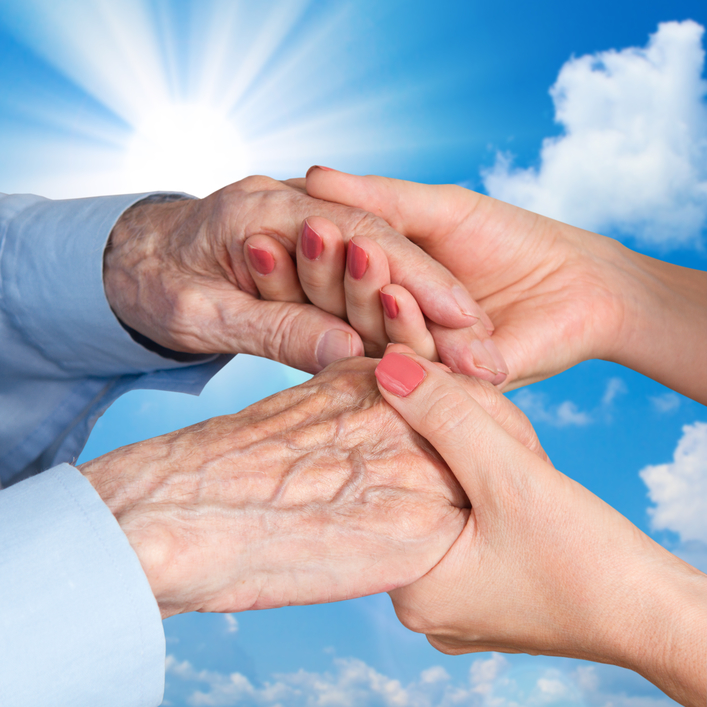Essential Care for the Caregiver: Nurturing the Unsung Heroes
Discover essential self-care strategies for caregivers in our guide. Covering mental, physical, and emotional wellness, it offers practical tips for managing stress, seeking support, and balancing caregiving with personal health. Prioritize your well-being to provide the best care.

Caregiving is a journey filled with love, sacrifice, and challenge. While caregivers tirelessly devote themselves to the well-being of their loved ones, their own needs often take a backseat. However, to provide the best care, caregivers must also prioritize their own health and wellness. This comprehensive guide explores the crucial aspects of self-care for caregivers, offering practical tips and insights to maintain their well-being while they support others.
Understanding the Caregiver's Role
Caregivers play a multifaceted role, often juggling medical responsibilities with emotional support. Whether caring for an aging parent, a partner with chronic illness, or a child with special needs, caregivers are the backbone of daily support and care. Recognizing the importance of this role is the first step in understanding why caregiver self-care is not just important, but essential.
The Importance of Self-Care
Self-care is not a luxury but a necessity for caregivers. Neglecting personal health can lead to caregiver burnout, a state of physical, emotional, and mental exhaustion. Burnout can diminish the quality of care provided and adversely affect the caregiver's health, leading to conditions like depression, anxiety, and physical illness.
Practical Tips for Caregiver Self-Care
Establish a Healthy Routine: Incorporate a balanced diet, regular exercise, and adequate sleep into your daily routine. This foundation of physical health is Ycrucial for the demands of caregiving.
Mental and Emotional Wellness: Engage in activities that promote mental health. This could include mindfulness practices, meditation, or simply enjoying a hobby. Remember, mental health is as important as physical health.
Seek and Accept Help: Don’t hesitate to ask for assistance from family, friends, or professional services. Utilizing respite care services can provide a much-needed break.
Connect with Support Groups: Sharing experiences with other caregivers can provide emotional support, practical advice, and a sense of community. Online forums and local support groups are valuable resources.
Set Boundaries: Learn to say no and set limits to your responsibilities. Overextending yourself can lead to stress and burnout.
Educate Yourself: Stay informed about the condition of the person you're caring for. Knowledge empowers and prepares you for challenges, reducing stress and uncertainty.
Regular Health Check-ups: Regular visits to your healthcare provider are essential. They help in early detection of stress-related health issues and provide a platform to discuss mental health concerns.
Time for Yourself: Set aside time for yourself regularly. Whether it's reading a book, taking a walk, or pursuing a hobby, personal time is vital for rejuvenation.
The Emotional Aspect of Caregiving
Caregiving can be an emotional rollercoaster, marked by feelings of guilt, frustration, and loneliness. Acknowledging these emotions and addressing them through counseling or peer support can significantly improve a caregiver's well-being.
Financial Considerations for Caregivers
Financial strain is a common concern for caregivers. Exploring financial assistance programs, tax deductions, and caregiver grants can alleviate some of this burden. Financial planning and consultation with experts can also provide long-term stability.
Legal Preparedness
Understanding and preparing legal documents such as power of attorney, wills, and advance directives can prevent future complications and provide peace of mind.
Technology and Caregiving
Leveraging technology can make caregiving more manageable. From medication reminders to telehealth services, technology offers tools to streamline care and communication.
Conclusion
Caregivers are the unsung heroes in the lives of those who need care. Their well-being is paramount to the sustainability of the care they provide. By embracing self-care, caregivers can ensure that they are healthy, happy, and prepared for the rewarding yet demanding journey of caregiving.
Update
Rebecca, a caregiver shared this
This was posted on a caregiving forum and I thought that I would re post here.
Caregiving may begin suddenly or gradually and can last from days to years.
It could take place in your own home. Or it could start as a long distance caregiving. It can continue long after your loved one has entered a care facility.
No matter the situation, caregivers experience continual grief. Watching a loved one deteriorate, or while wishing that the situation were different.
Chronic sadness is a heavy burden to bear. It is compounded as caregivers try to run the entire household. Many are responsible for complex care needs of their loved one. Some are trying to balance the demands of a career.
If life were as simple as a balance scale… the chronic grief would be the weights on one side, with resiliency factors on the other side. By focusing on resiliency, one’s thoughts can change from I am sad or angry because… to I can cope because….
Here are 12 resiliency factors that help me:
- Self-Care. Telling someone to “take care of yourself” can be said in such a way as to make it another failed task. Recognize the absence of self-care as a symptom of increased stress. It may also be decreased coping. Identify your stressors. Look for ways to diminish them, and then allow some time for pampering yourself.
- Spirituality. All faiths have stories of struggles and selflessness. Become familiar with those stories and how they can give you strength in your life and encourage you. .
- Grief. Caregivers experience many losses. Acknowledge them. Actively grieve them and don’t deny their existence. Without grieving, the sense of loss remains like a tender boil that needs to be lanced, in order to heal.
- Laughter. Even in caring for another, funny things happen. Don’t be afraid to laugh at your own foibles, your own klutziness as you learn new skills. Rent a comedic movie if you can find nothing else to laugh at. Laughter helps the body make good brain chemicals called endorphins.
- Education. Learn all you can about the disease, its treatment and its prognosis. Learn about care giving, too. You might want to read about differences between healing and curing.
- Social Support. Humans are social animals. The support we get from our friends helps keep us going.
- Goal-Setting. In a crisis, perhaps goals are set for the day or the week. In caring for a long-term chronic illness, setting goals for a year or two may be more appropriate.
- Hope. Hoping to be done with care giving is a common. Hope, means that one is hoping for an end to the relationship in which a person needs care. That could mean death, which by logical progression means hoping for grief. A more positive perspective is to hope for… the resources, energy, skills and ability to continue.
- Life Celebration. Have a birthday party. Celebrate all the Hallmark-card days. Find cause to make some days special, even if it’s just getting to eat a meal on a “You Are Special Today” plate.
- Diversions. Have some things that can get your mind off care giving, even briefly. These may be hobbies or a job you love. Or maybe visit with friend with whom you can share a cup of tea or a short vacation. Whatever works. Remember, outside relationships need
- Mental Health Support. If you find yourself feeling sad and grieving, you may be feeling stuck in grief. A support group can help you feel as if you are not alone. Find a mental-health counselor. They are offering more therapy online than ever before. And, if needed and prescribed, take anti-depressants to be in the best possible frame of mind. If you are depressed, you are less able to help the one in your care.
- Journal Keeping. Writing about your experiences at the end of a day can help you put life in perspective. Especially when you later go back to look at what you wrote. A gratitude journal or a blessings journal helps. You see that there have been good things during the course of what you might immediately remember as a bad day.
This is not an exhaustive list.
I invite you to answer this question yourself:
What in your life makes it possible to continue as a caregiver?
Rebecca,
Thank you so much for sharing this with us. This is such a beautiful list.
I would like to add that it is important to…
- Eat right
- Get adequate sleep
- Some sort of exercise every day, even if it is just stretching
- Positive self talk are also important things to include in your daily care giving life.
I hope that if you are on this page, you will SHARE what you do with others.
You might also like this article:













